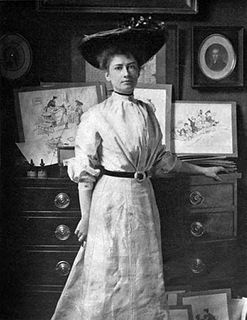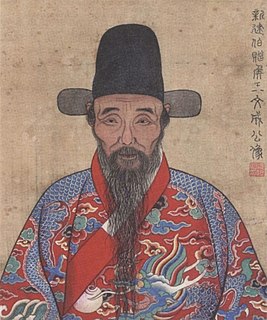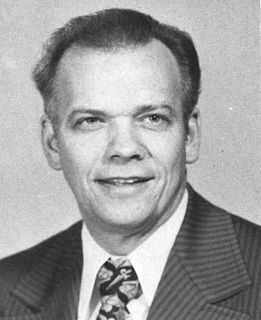A Quote by Florence Scovel Shinn
Through his spoken word, man is continually making laws for himself.
Quote Topics
Related Quotes
I believe that the unity of man as opposed to other living things derives from the fact that man is the conscious life of himself. Man is conscious of himself, of his future, which is
death, of his smallness, of his impotence; he is aware of others as others; man is in nature, subject to its laws even if he transcends it with his thought.
Tobacco smoke is the one element in which, by our European manners, men can sit silent together without embarrassment, and where no man is bound to speak one word more than he has actually and veritably got to say. Nay, rather every man is admonished and enjoined by the laws of honor, and even of personal ease, to stop short of that point; and at all events to hold his peace and take to his pipe again the instant he has spoken his meaning, if he chance to have any.
How shall we define occultism? The word is derived from the Latin occultus, hidden; so that it is the study of the hidden laws of nature. Since all the great laws of nature are in fact working in the invisible world far more than in the visible, occultism involves the acceptance of a much wider view of nature than that which is ordinarily taken. The occultist, then, is a man who studies all the laws of nature that he can reach or of which he can hear, and as a result of his study he identifies himself with these laws and devotes his life to the service of evolution.
Solitude is the profoundest fact of the human condition. Man is the only being who knows he is alone, and the only one who seeks out another. His nature - if that word can be used in reference to man, who has ‘invented’ himself by saying ‘no’ to nature - consists in his longing to realize himself in another. Man is nostalgia and a search for communion. Therefore, when he is aware of himself he is aware of his lack of another, that is, of his solitude.
If the Word of God is living and powerful, and if the Lord does all things whatsoever he wills; if he said, "Let there be light", and it happened; if he said, "let there be a firmament", and it happened; ...if finally the Word of God himself willingly became man and made flesh for himself out of the most pure and undefiled blood of the holy and ever Virgin, why should he not be capable of making bread his Body and wine and water his Blood?... God said, "This is my Body", and "This is my Blood."
I understand from what the Lord has revealed to us through the prophets that people are his greatest concern. We are his children. We are somebody, as Elder Ashton so wonderfully stated this morning. We are his children, and he continually reveals himself through the prophets so that one day we can be like him.
If we wish to know about a man, we ask 'what is his story--his real, inmost story?'--for each of us is a biography, a story. Each of us is a singular narrative, which is constructed, continually, unconsciously, by, through, and in us--through our perceptions, our feelings, our thoughts, our actions; and, not least, our discourse, our spoken narrations. Biologically, physiologically, we are not so different from each other; historically, as narratives--we are each of us unique.







































